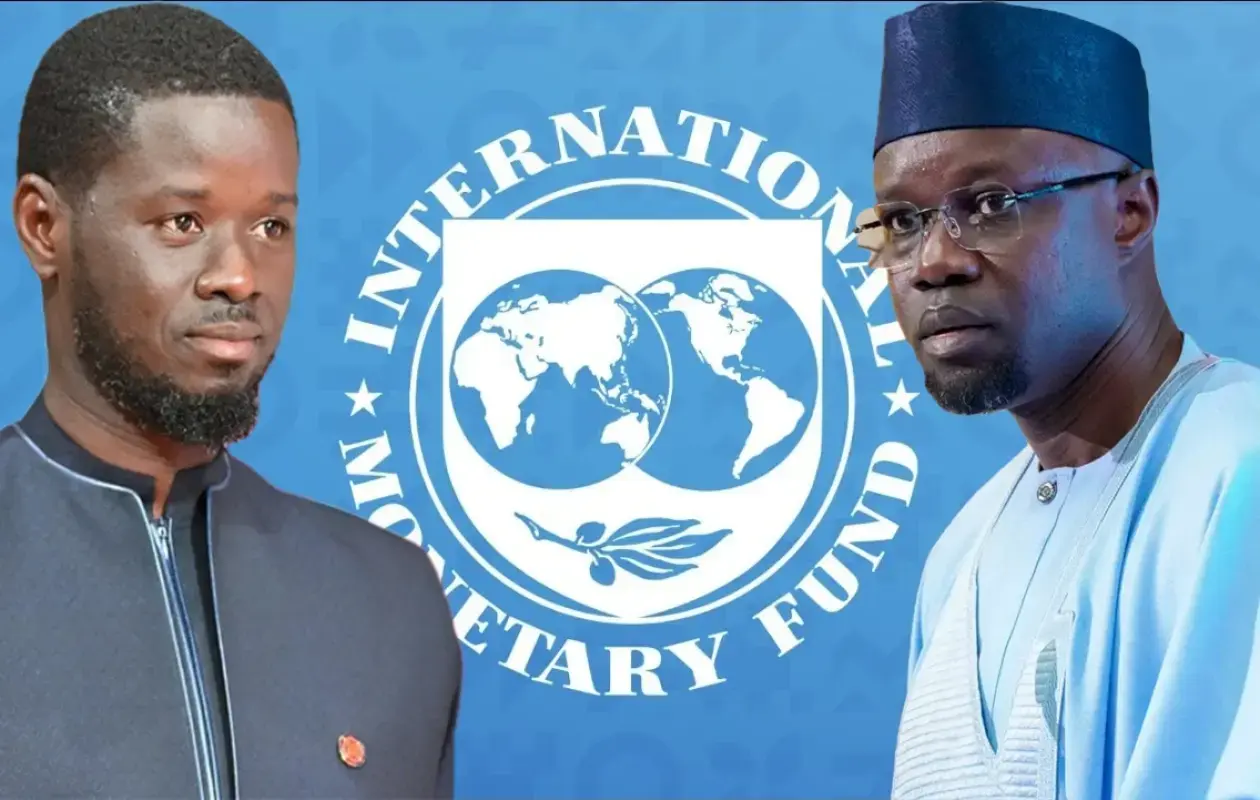
Le Sénégal peut-il se passer du FMI ?
While Prime Minister Ousmane Sonko claims to want to strengthen the country's financial autonomy, Senegal is simultaneously continuing its negotiations with the International Monetary Fund. During a recent IMF mission to Dakar, budget execution and transparency in public finances were at the heart of the discussions. Ousmane Sonko's speech, stating that "Senegal does not need the IMF," reflects a desire for economic sovereignty. Economist Mor Gassama points out that "the government can do without the IMF for its day-to-day operations, but having this partner allows it to benefit from lower interest rates and increased credibility with other donors."
For him, the IMF is not the country's economic engine, but a technical and financial support provider. "What develops Senegal is Senegal itself. The IMF is there to support, not to lead," he says, before adding that "IMF disbursements are not essential for Senegal to continue functioning." He points out that the government has already mobilized more than 10,200 billion CFA francs without waiting for IMF funds. "This financing, however, remains a breath of fresh air and, above all, a label that reassures investors," he says.
Since the arrival of the new authorities, Senegal has renegotiated its program with the IMF to align it with its national priorities, notably the Senegal 2050 plan. Audits have been launched to clarify the hidden debt situation and restore trust with technical and financial partners. "There is now a paradigm shift," observes Mor Gassama. "The IMF is no longer a dictator, but a respected partner, and its expertise can contribute to the sound management of public finances."
Between proclaimed sovereignty and strategic dependence, the country is seeking a delicate balance to ensure its economic stability while preserving its credibility with international investors. This stance is reminiscent of that of Ghanaian President Nana Akufo-Addo, who, in 2017, declared his intention to break with the Bretton Woods institution. But faced with worsening debt and rampant inflation, Accra was forced to return to the institution in 2022 for a $3 billion rescue plan. Mor Gassama warns, asserting that this "Ghanaian experience shows that proclaimed autonomy is difficult to maintain if it is not supported by solid structural reforms."
Towards long-term sovereignty?
In the short term, Senegal remains dependent on the IMF's certification and expertise. But in the medium term, the research professor emphasizes that "improved tax revenue mobilization, economic diversification, and strengthened budgetary discipline could enable the country to reduce its dependence on external financing."
The recovery plan adopted by Sonko's government focuses on increased mobilization of domestic resources: 90% of public spending financing must now come from domestic revenue. The goal is to reduce the public deficit to 3% of GDP and gradually reduce the debt burden. But the path to true autonomy remains fraught with obstacles. "To achieve lasting economic sovereignty, we will need to diversify the economy, broaden the tax base, and strengthen fiscal discipline," explains Gassama.
In the meantime, the IMF remains a strategic partner. "The country can function without the Fund, but it is better to have it at its side," the economist summarizes.
Commentaires (1)
Il faut cependant faire attention car en matière de dette le stock peut peser sur les flux futurs.
Dire "mobilisé plus de 10 200 milliards de francs CFA", cela veut dire qu'on a déjà beaucoup puisé sur le "possible" (plus de 120% de dette/ PIB) et à partir d'un certain moment, le défaut et d'autres problèmes surgissent.
Participer à la Discussion
Règles de la communauté :
💡 Astuce : Utilisez des emojis depuis votre téléphone ou le module emoji ci-dessous. Cliquez sur GIF pour ajouter un GIF animé. Collez un lien X/Twitter ou TikTok pour l'afficher automatiquement.